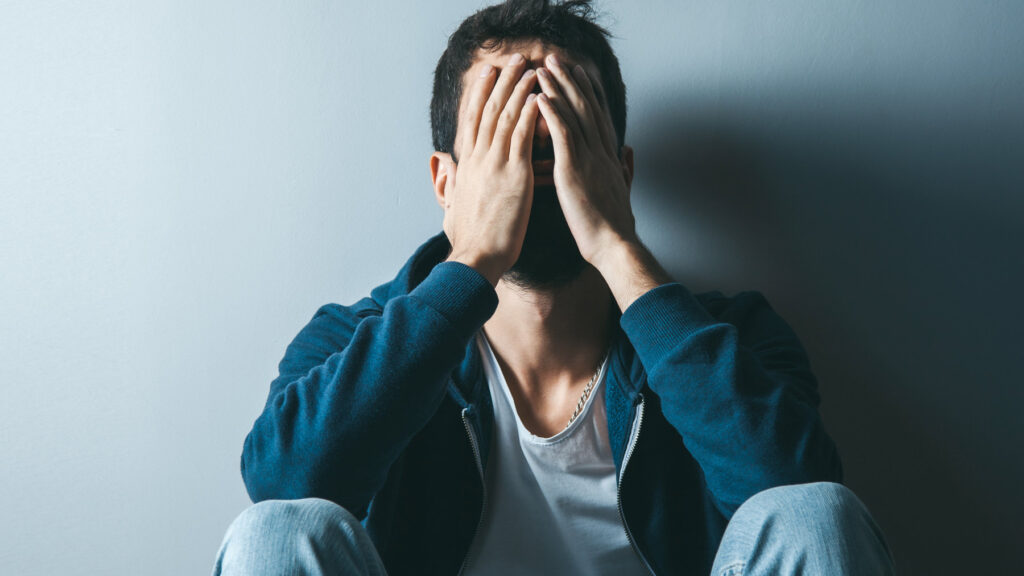
Cocaine’s Effects on Mental Health
Cocaine’s impact on physical health is marked by its changes to the brain, but many people may be less aware of the drug’s effect on their mental health. Some of these effects may be noticeable to long-term cocaine users, even if they don’t necessarily associate the effects with their drug use. Learning some of the primary mental health effects of sustained cocaine use can create a foundation for recognizing the need for medical detox right now.
10 Effects of Cocaine on Mental Health
1. Cocaine use can result in seizures, which worsen depression, anxiety, or other co-occurring mental health disorders.
Cocaine users with existing mental health conditions may see an increase in the severity of their symptoms after experiencing seizures or other physical changes in their body. A chronic disorder connected to cocaine use may require long-term treatment, adding to the risk of making mental health symptoms more severe.
2. Cocaine use can create auditory hallucinations.
Hearing sounds that aren’t actually occurring can make a person feel unsafe, afraid, or paranoid. These feelings can be worsened as the hallucinations disrupt their ability to function normally at work and with friends and family.
3. A crash after cocaine use can produce a variety of mental health concerns.
The feeling of euphoria is over and replaced by feelings of anxiousness, irritability, or exhaustion. This “crash” period can last several days.
4. Cocaine withdrawal shows signs and symptoms that overlap with mental health disorder symptoms.
Cravings, poor concentration, and lethargy appear during withdrawal from cocaine use. These symptoms may last several weeks.
5. Cocaine can rob a person of adequate and quality sleep and result in depression.
Consistent loss of sleep can worsen mental health conditions or create new ones. For example, developing insomnia from drug use can result in depression or anxiety from an inability to fall asleep or stay asleep.
6. Long-term cocaine use can lead to paranoia.
Even when not actively using cocaine, a person with paranoia will feel like someone’s always watching them or “out to get them.” It can change their behavior as they attempt to avoid attention or openly accuse people of having bad intentions.
7. Cocaine use can lead to psychosis.
Losing touch with reality can be the result of long-term cocaine use or using large amounts in short periods of time. Their senses are affected as they see or hear things that aren’t present. They may be unaware of how their behavior looks to other people.
8. Cocaine use can lead to vertigo, making users feel their surroundings are chaotic.
Imagine the discomfort of seeing the world around you moving or spinning. Vertigo can make a person feel dizzy, imbalanced, and unable to focus.
9. Cocaine increases anxiety.
As a stimulant, cocaine can lead to anxiety or worsen existing anxiety in a person. The drug changes the way your brain receives and sends messages, speeds up heart rate, and raises blood pressure. The end result can be feeling nervous, restless, and unable to calm down.
10. Cocaine can lead to suicidal thoughts.
The impact of changing brain chemistry can make a person feel like their life is worthless. They may appear to take bigger risks or seem to act carelessly in unsafe environments. They may become desperate to harm themselves or even take their life.
5 Reasons to Use Medical Detox for Cocaine Abuse
1. Cocaine withdrawal at home creates risk of complications.
Medically supervised cocaine detox reduces the risk of complications related to cocaine withdrawal symptoms. These symptoms can create harm to a patient’s health and well-being. Medical detox also provides an opportunity to treat certain symptoms with medication to alleviate discomfort during withdrawal.
2. Cocaine withdrawal at home may provide only limited care and support.
Even patients with medical professionals for support at home are unlikely to receive care 24/7 from them. It’s a demanding role to play for a family member, while medically-supervised detox monitors a patient round-the-clock. A medical team can respond to the emergence of new symptoms in real time and manage them right away.
3. Cocaine withdrawal at home doesn’t provide for addressing co-occurring physical and mental health conditions.
Someone who’s been abusing cocaine for years is likely to have unmet physical and mental health needs. They may be suffering from chronic health conditions or other health issues due to substance use. Their mental health disorders may involve anxiety, depression, or trauma. Medical detox addresses the comprehensive needs of a patient to help them prepare for the necessary recovery work ahead.
4. Cocaine withdrawal at home won’t lead to discovery of underlying conditions.
One factor contributing to substance use that may get missed is an underlying mental health disorder. This disorder can be a factor in why a person started to abuse cocaine and why they have struggled to quit using. A medically-supervised detox setting can provide a much-needed diagnosis for a person with depression, anxiety, or some other mental health concerns.
5. Cocaine withdrawal at home increases the chance for relapse before recovery gets underway.
An unsupported detox attempt at home can lead to a quick relapse. In a medical detox, support and treatment reduces the risk of returning to cocaine abuse. In addition, a person learns what options are available to start treatment, whether inpatient or outpatient, after they finish the medical detox so they can make informed decisions about their own recovery needs.
Restored Path’s Solution
Restored Path Detox is DFW’s premier location for sophisticated medical detox. Conveniently located in Frisco, we provide a safe sanctuary for healing that is also a state-of-the-art detoxification facility for a wide range of substances. Our compassionate physicians and therapists want you to get well and are committed to removing any existing barriers to your care. Restored Path’s team of board-certified physicians and highly qualified nursing team have extensive critical care experience and are available to monitor your detox program 24 hours a day, seven days a week.
If you or a loved one are struggling with drug or alcohol use, call us today and take your first step towards recovery: 469-827-0000.
If you or a loved one are struggling with drug or alcohol use, call us today and take your first step towards recovery: (469) 827-0000.
Related ARticles







